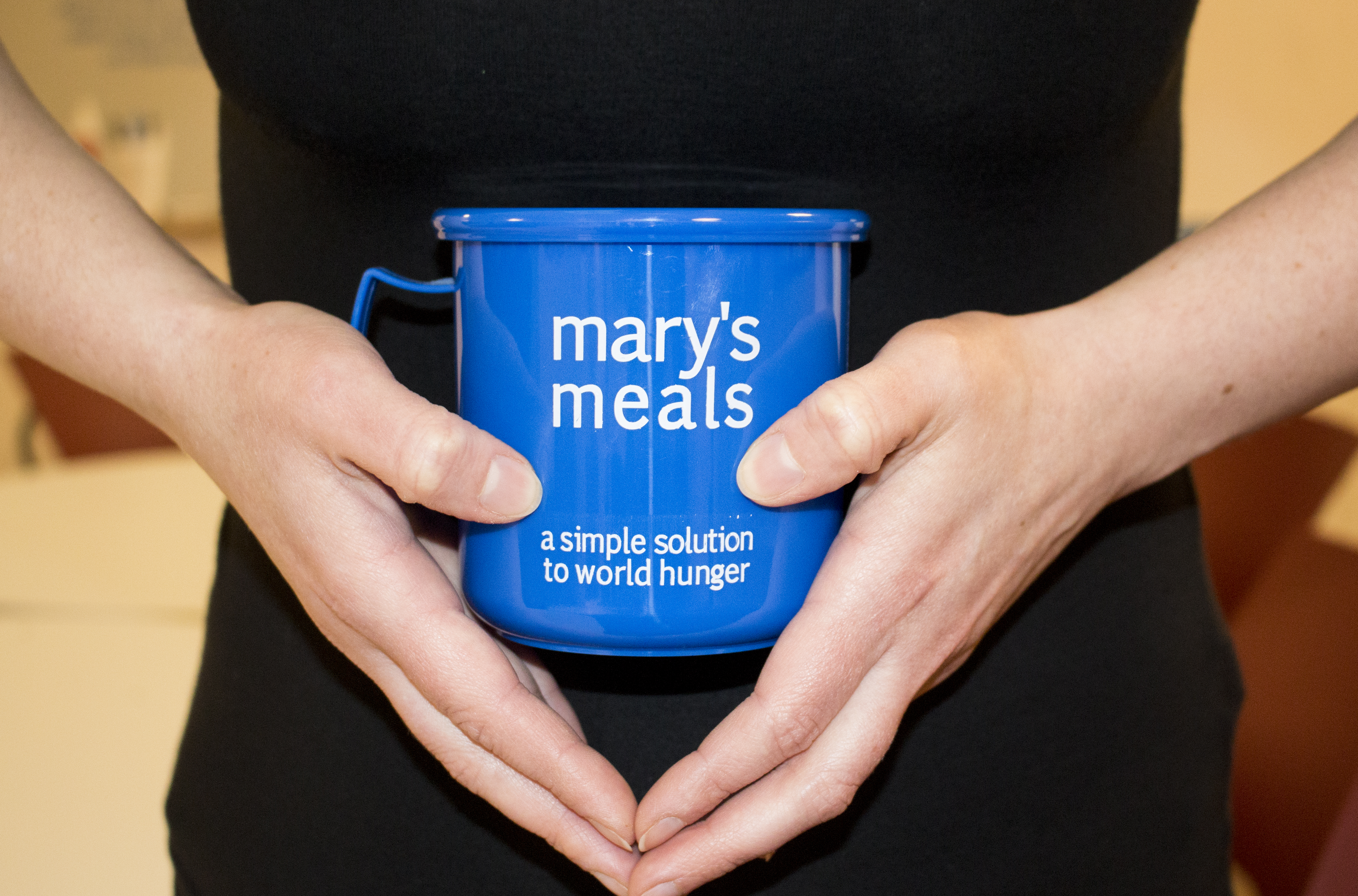
A poignant visit: Mary's Meals reunites with colleagues in war-torn Tigray
Graeme Little, Chief Programmes Officer, shares insights and stories from a recent trip to Ethiopia.
Graeme Little, Chief Programmes Officer, shares insights and stories from a recent trip to Ethiopia, where he accompanied our local partner to carry out community food distributions. There he met some of the people we are supporting thanks to generous support for our emergency appeal – families and children trying to rebuild their lives after being caught up in a devastating two years of war.
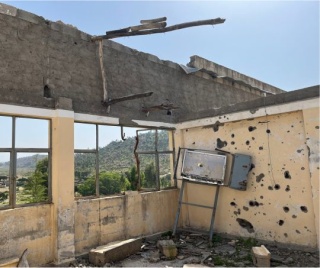
In late 2019 and 2020, Ethiopia experienced its worst locust infestation for 25 years. Alongside flooding and drought, this wreaked havoc on food security and livelihoods. In March 2020, COVID-19 forced schools to close. Then, as schools in Tigray readied for re-opening in November 2020 – and we were poised to resume in-school feeding and further expand our programme there – a two-year armed conflict began with terrible consequences for the region and its people. Many Tigrayan children have missed out on three years of school or more between COVID-19 and the war.
During the conflict, only sporadic contact was possible with our local partner. Any interactions we did manage focused on collective sharing and support, and the urgent work of planning and delivering emergency food to the centres in Mekelle (mostly school buildings) where thousands of displaced people from across Tigray were seeking refuge. Following the November 2022 peace agreement, which re-established access for humanitarian aid, we switched to community food distributions in the areas where the Mary’s Meals programme normally operates – and were able to make plans to visit Tigray.
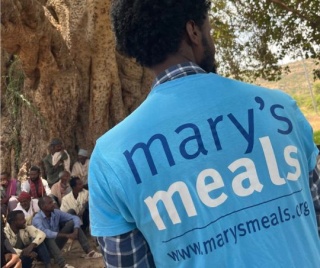
Arriving at Mekelle airport, we were welcomed by our partner. This was an emotional moment – not just a meeting of individuals, but the reunion of two close families who have spent years interlinked. Those hugs lasted much longer than a hug normally would. On the drive into the city, our colleagues shared deeply moving stories – stories of profound need, incredible resilience and ingenuity in the ways our partner found to serve those who were suffering because of the terrible conflict.
We received a beautifully warm welcome from the partner’s whole team at their office – a welcome that was for the entirety of the Mary’s Meals movement, including the supporters who have so generously given their gifts of time, money and prayer when most needed. We shared some of the ways individual supporters had taken the situation faced by families in Tigray to heart, giving examples of amazing fundraising escapades (such as Ruth who undertook cold, daily open-water swims; or Martin who collected and sold scrap metal) to raise funds for our Tigray appeal. Collective tears flowed once more – a mix of deep emotion, release, with some moments of joy sprinkled in – a theme that continued during our days here
We visited schools and communities who previously worked alongside our partner to serve Mary’s Meals. Here, we saw some of the regular food distributions taking place – which are supporting children while schools remain closed – made possible by the amazing response to our emergency appeal.
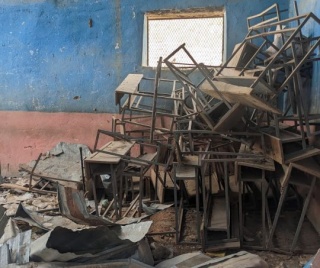
Passing through truly stunning landscapes during our visit, so quiet and serene, it was often hard to imagine the deep suffering and awful destruction that had so recently occurred wherever we walked or drove. However, that quickly changed when we arrived at each village. Schools had very often been used as makeshift bases for the various armed groups in the war – one community we visited had experienced this in 13 separate periods during the conflict. The devastating signs of conflict were abundant in each place, and we heard brutal stories wherever we went, with no-one remaining unaffected by the war in some significant way. All schools and food stores we visited had been seriously damaged, throwing up a further challenge for children who are desperate to return to school.
We spoke to one woman with three children who told us about when one armed group came to her village and she and her family fled into the hills to hide. They were hiding for eight days with almost no food at all, so, to survive, they were eating leaves from a plant that is somewhat edible but very unpleasant tasting and very unfulfilling. They also gathered rainwater in rocks to have something to drink. Thankfully, her family is now receiving our food distributions and her two children will receive Mary’s Meals when they return to school.
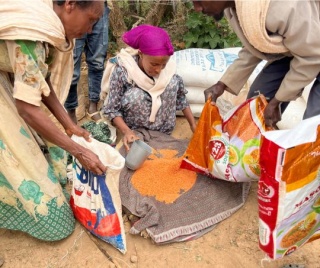
In the face of extreme challenges, it’s clear that our partner is ensuring that our food is reaching the most vulnerable people in the communities we serve. It’s also clear that the impact of these distributions is great, but that more support is desperately required – after two years of conflict, on top of an already difficult situation, the need here significantly exceeds the help that is currently available.
In a context where other international agencies recently halted their distributions across Ethiopia owing to concerns around transparency of their distributions, and where fear and uncertainty remain within communities regarding the path ahead, our promise to restart in-school feeding is one that is bringing true hope. As soon as is feasible, we will resume our school feeding programme with help from local communities. This feeling of hope and anticipation was one we found many people wanted to share with us during our visit.
Graeme Little
Chief Programmes Officer, Mary’s Meals International
